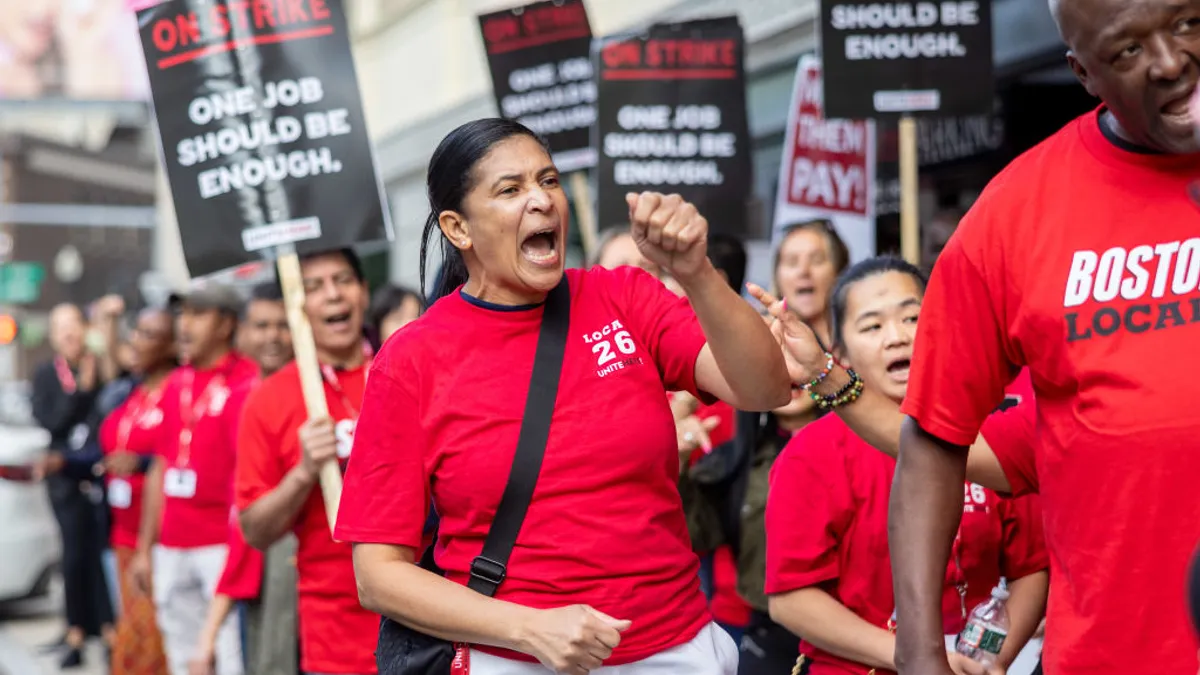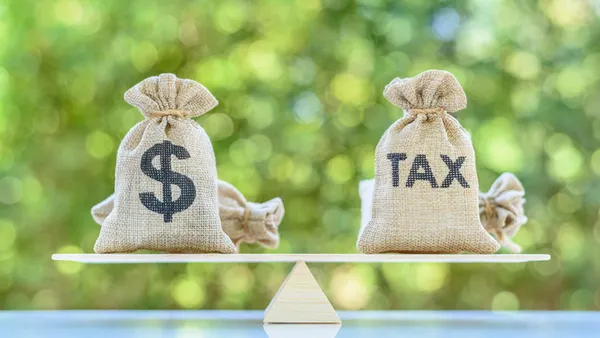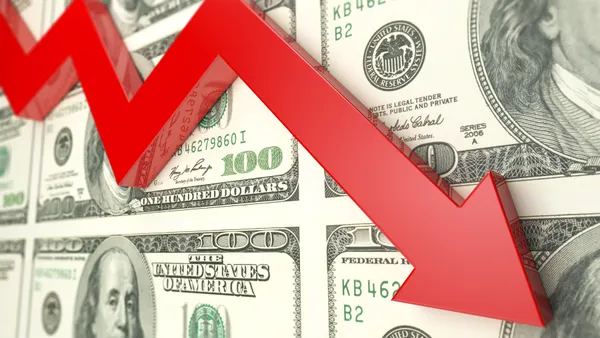Dive Brief:
- Americans favor labor unions over big business more than at any time in 60 years, the Economic Policy Institute said, in part because former President Joe Biden and President Donald Trump, during his first White House term and while seeking his second term, voiced support for pro-labor policies.
- Public perceptions toward unions and big business moved in tandem from 1964 until 2012 but began to split in 2016, the institute said Tuesday in a report. Organized labor gained comparative appeal regardless of differences in race, gender, education, wealth and political orientation.
- “Labor unions have huge sympathy from Americans relative to big business right now,” the institute said, citing American National Election Studies data from 2024. “In fights between organized labor and organized capital, Americans are likely to support labor more now than at any time on record.”
Dive Insight:
Public sentiment probably shifted more in favor of unions because of labor campaigns targeting companies such as Starbucks and Amazon, and broader initiatives to increase wages, including Fight for $15, the institute said.
Also, a growing wealth gap in recent decades has kindled pro-labor sympathies, and Sen. Bernie Sanders, I-Vt., along with left-leaning lawmakers in the House, have given voice to resentment over differences in economic opportunity and outcomes, the institute said.
Finally, “some bosses’ reactions to the pandemic — layoffs and forcing workers to take on more risks — made clear to many Americans that their boss would use power against them,” the institute said. “This seems to have left Americans looking for more control over their job and working conditions.”
While public support for organized labor has grown in recent years, unions have not made significant inroads in worker representation.
The union membership rate last year, at 9.9% of the workforce, was little changed compared with 2023, and since 1983 it has slumped from 20.1%, according to the Bureau of Labor Statistics.
Biden, while consistently backing organized labor, repeatedly called on large companies to reduce prices, targeting especially food producers and supermarket chains.
"Too many corporations raise their prices to pad their profits, charging you more and more for less and less," he said in his March 2024 State of the Union Address. “That’s why we’re cracking down on corporations that engage in price gouging and deceptive pricing, from food to healthcare to housing.”
Former Vice President Kamala Harris, while campaigning for president, took Biden’s effort a step further, pledging to outlaw price gouging.
"I will work to pass the first-ever federal ban on price gouging,” she said last August. “My plan will include new penalties for opportunistic companies that exploit crises and break the rules.”
Trump has warned companies against unreasonably raising prices, pressuring them not to shift to consumers the higher cost of goods from 10% tariffs against virtually every U.S. trade partner and 30% import duties on goods from China.
“Walmart should STOP trying to blame tariffs as the reason for raising prices throughout the chain,” he said Saturday on social media.
“Between Walmart and China they should, as is said, `EAT THE TARIFFS,’ and not charge valued customers ANYTHING,” Trump said. “I’ll be watching, and so will your customers!!!”
















